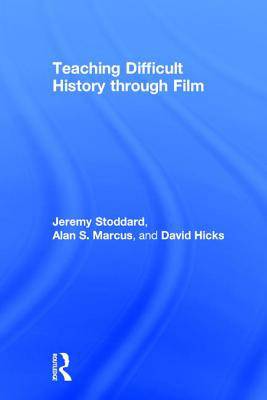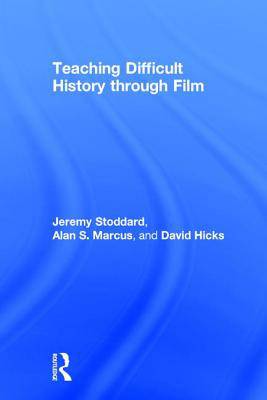
- Retrait gratuit dans votre magasin Club
- 7.000.000 titres dans notre catalogue
- Payer en toute sécurité
- Toujours un magasin près de chez vous
- Retrait gratuit dans votre magasin Club
- 7.000.000 titres dans notre catalogue
- Payer en toute sécurité
- Toujours un magasin près de chez vous
Teaching Difficult History Through Film
Jeremy Stoddard, Alan Marcus, David HicksDescription
Teaching Difficult History through Film explores the potential of film to engage young people in controversial or contested histories and how they are represented, ranging from gender and sexuality, to colonialism and slavery. Adding to the education literature of how to teach and learn difficult histories, contributors apply their theoretical and pedagogical expertise and experiences to a variety of historical topics to show the ways that film can create opportunities for challenging conversations in the classroom and attempts to recognize the perspectives of historically marginalized groups.
Chapters focus on translating research into practice by applying theoretical frameworks such as critical race theory, auto-ethnography or cultural studies, as well as more practical pedagogical models with film. Each chapter also includes applicable pedagogical considerations, such as how to help students approach difficult topics, model questions or strategies for engaging students, and examples from the authors' own experiences in teaching with film or in leading students to develop counter-narratives through filmmaking. These discussions of the real considerations facing classroom teachers and professors are sure to appeal to experienced secondary teachers, pre-service teacher education programs, graduate students, and academic audiences within education, history, and film studies.
Part and chapter discussion guides, full references of the films included in the book, and resources for teachers are available on the book's companion website www.teachingdifficulthistory.com.
Spécifications
Parties prenantes
- Auteur(s) :
- Editeur:
Contenu
- Nombre de pages :
- 272
- Langue:
- Anglais
Caractéristiques
- EAN:
- 9781138190764
- Date de parution :
- 15-06-17
- Format:
- Livre relié
- Format numérique:
- Genaaid
- Dimensions :
- 152 mm x 229 mm
- Poids :
- 497 g







